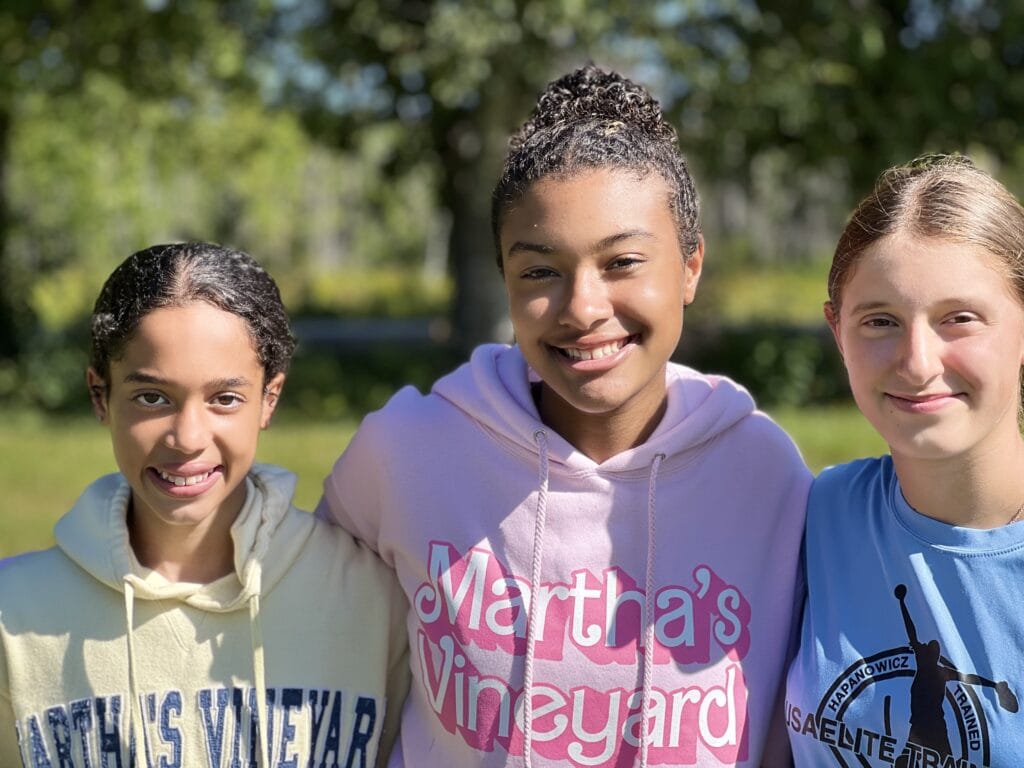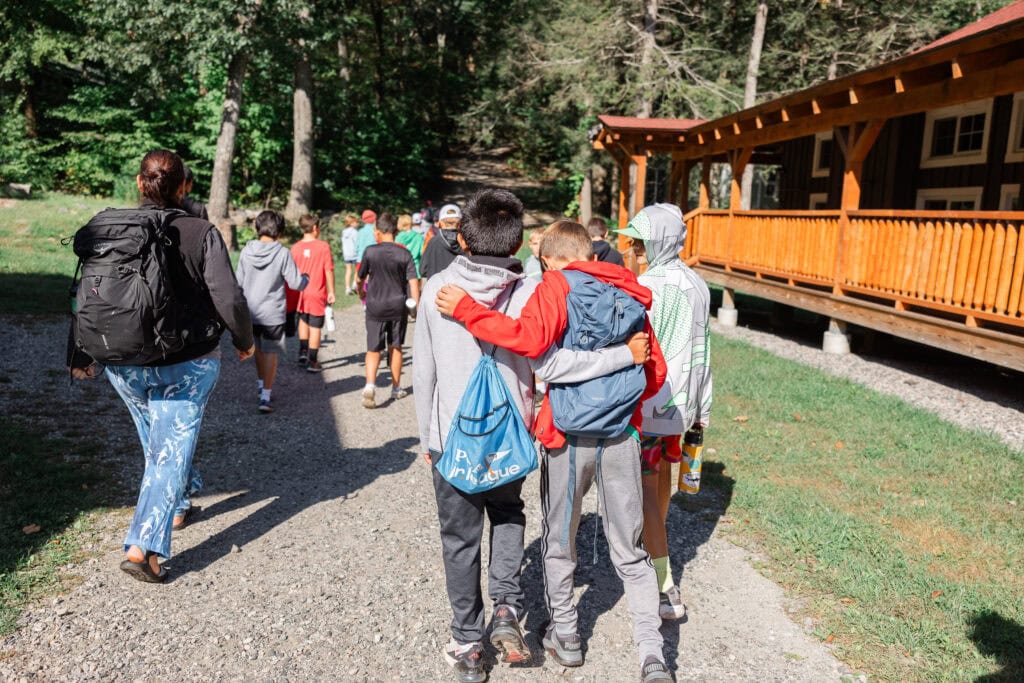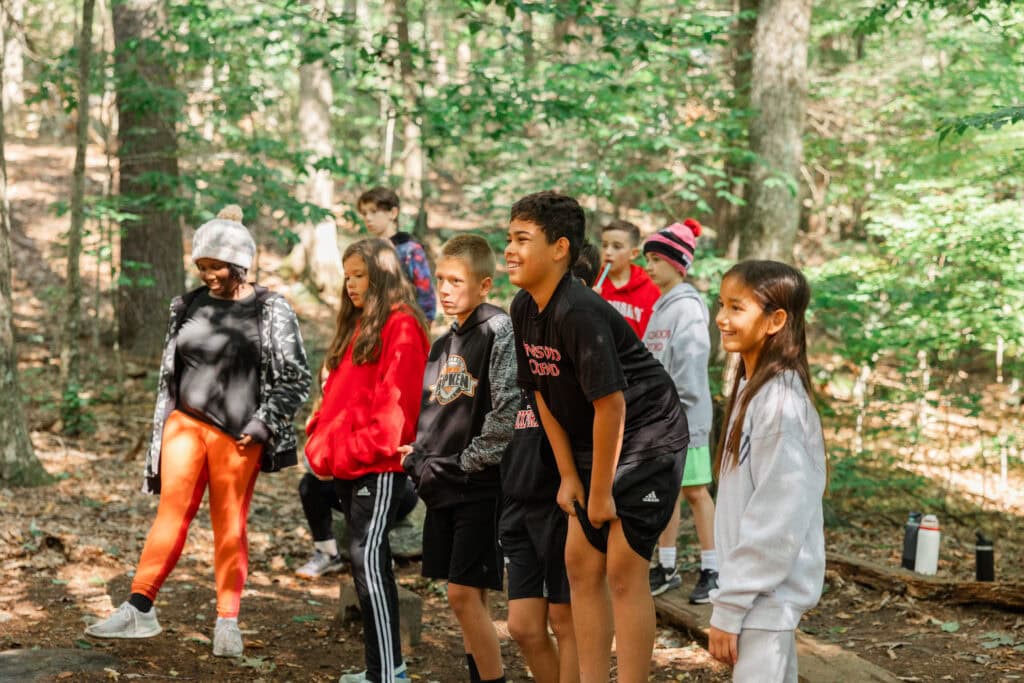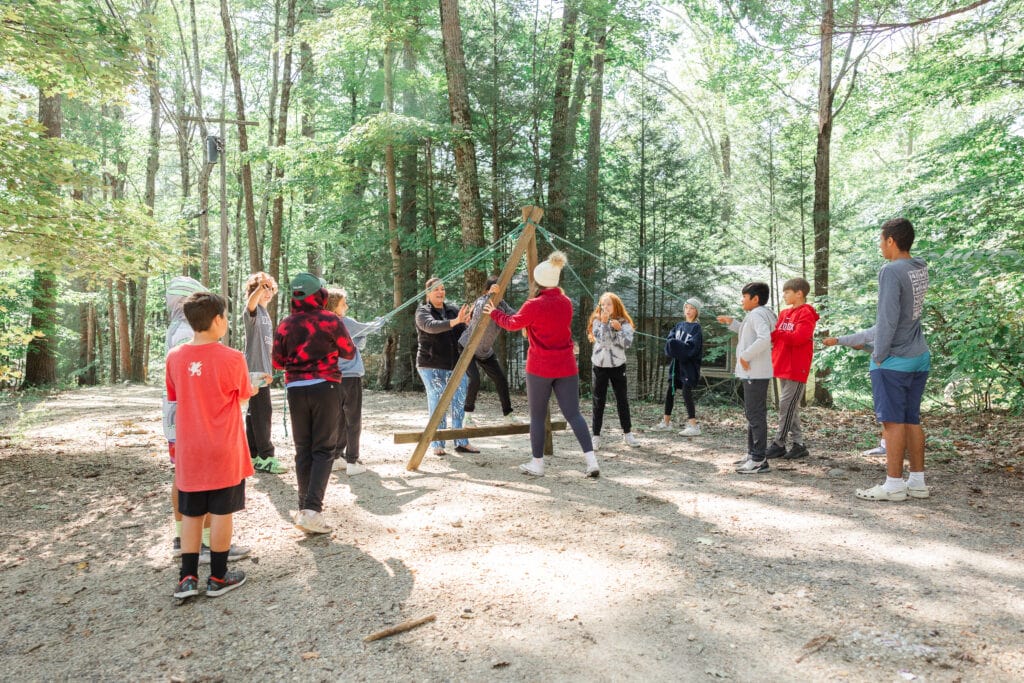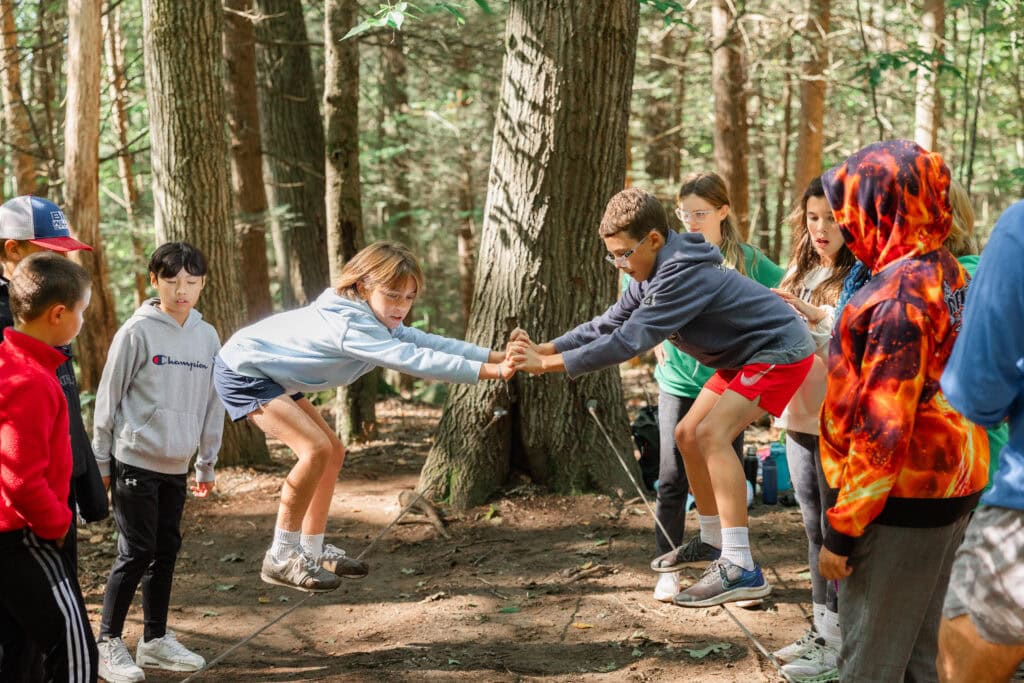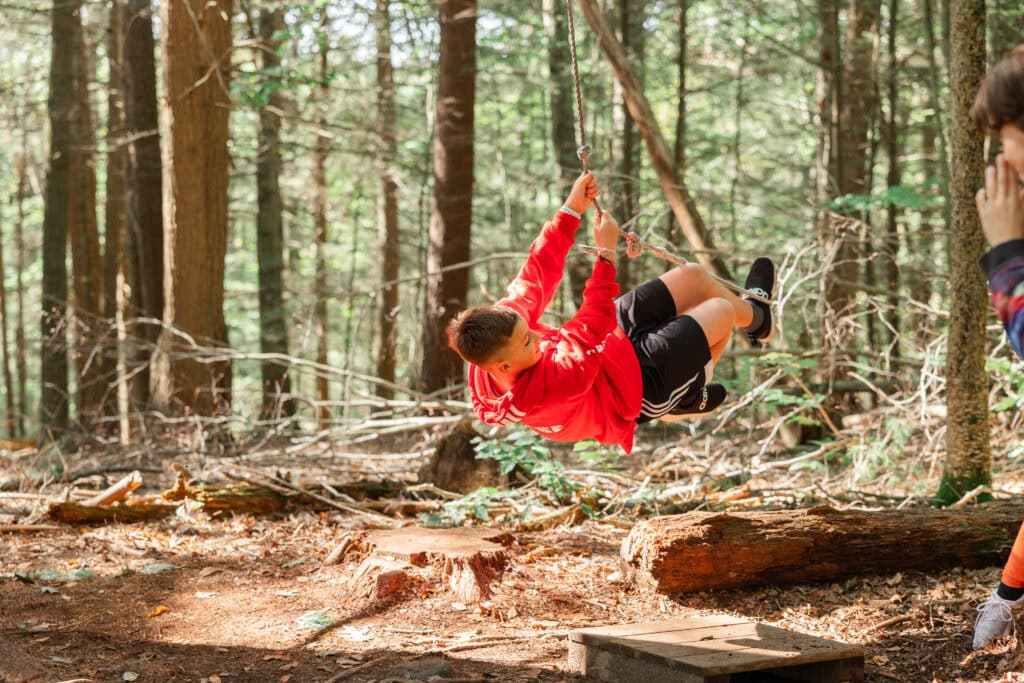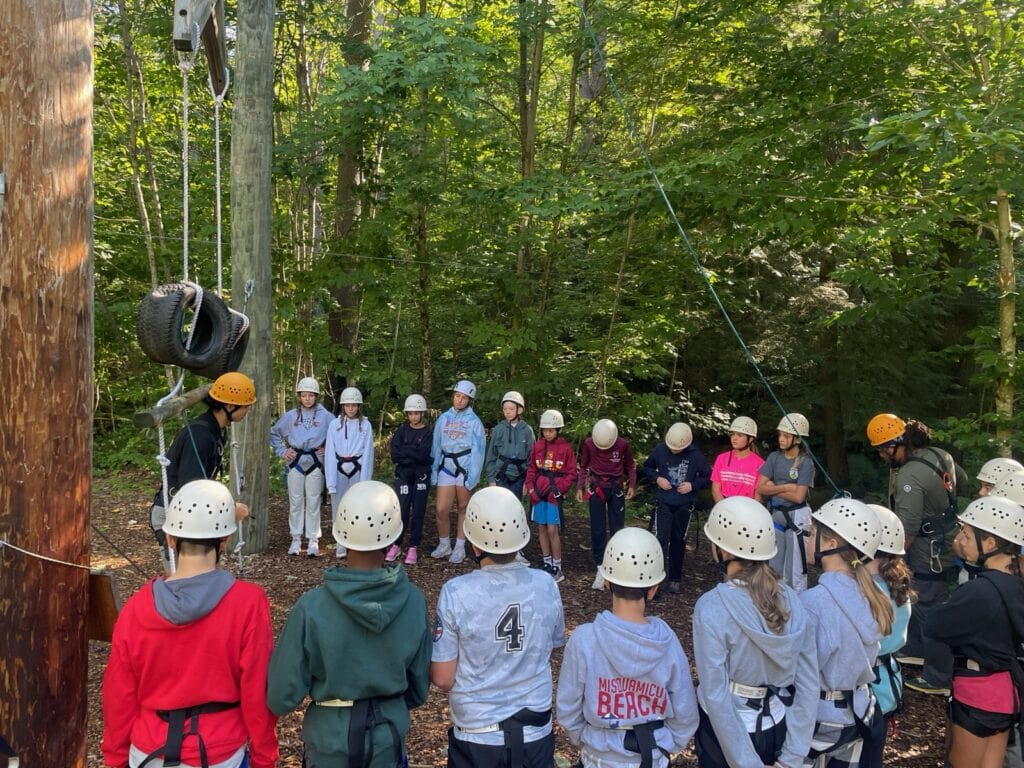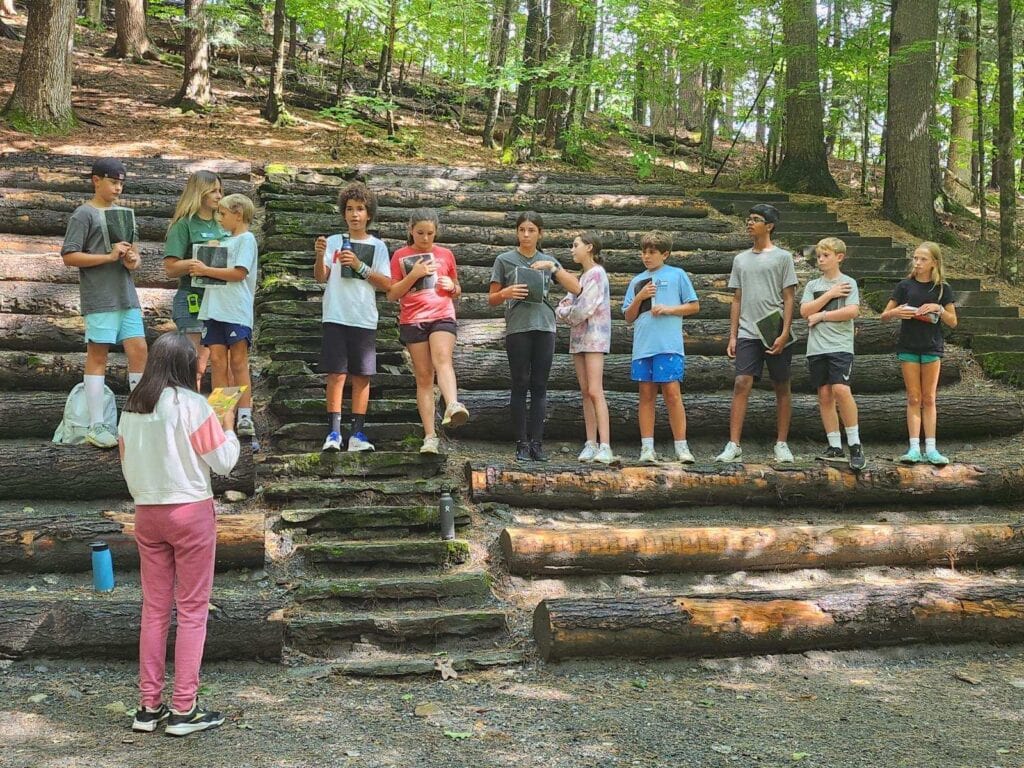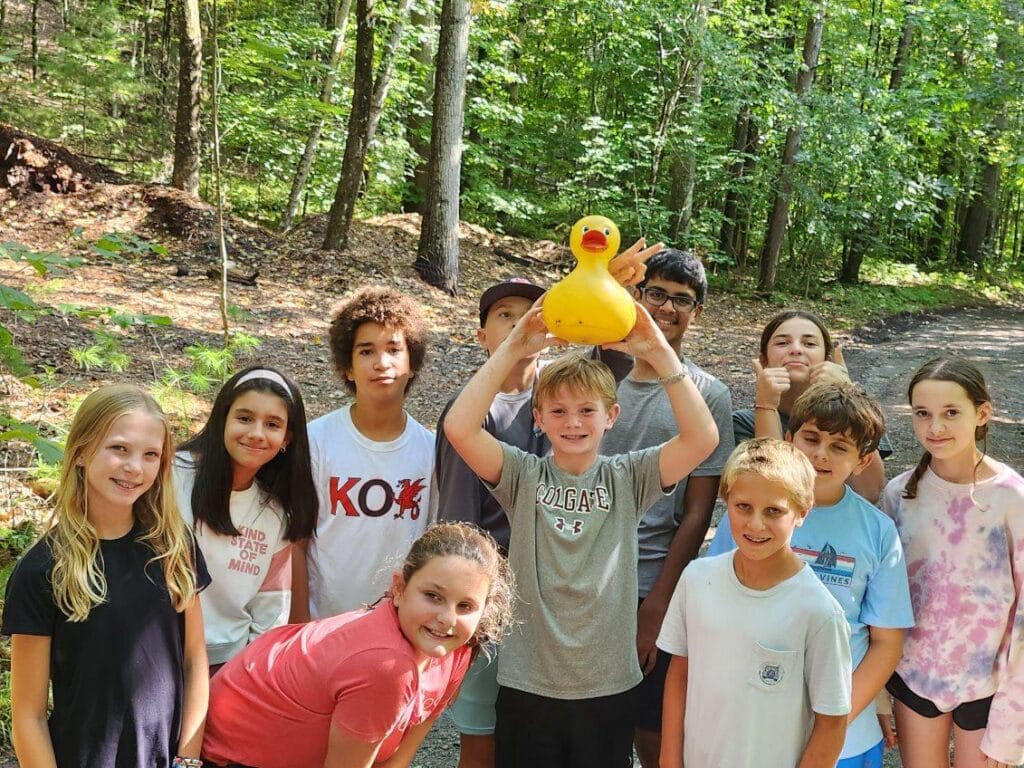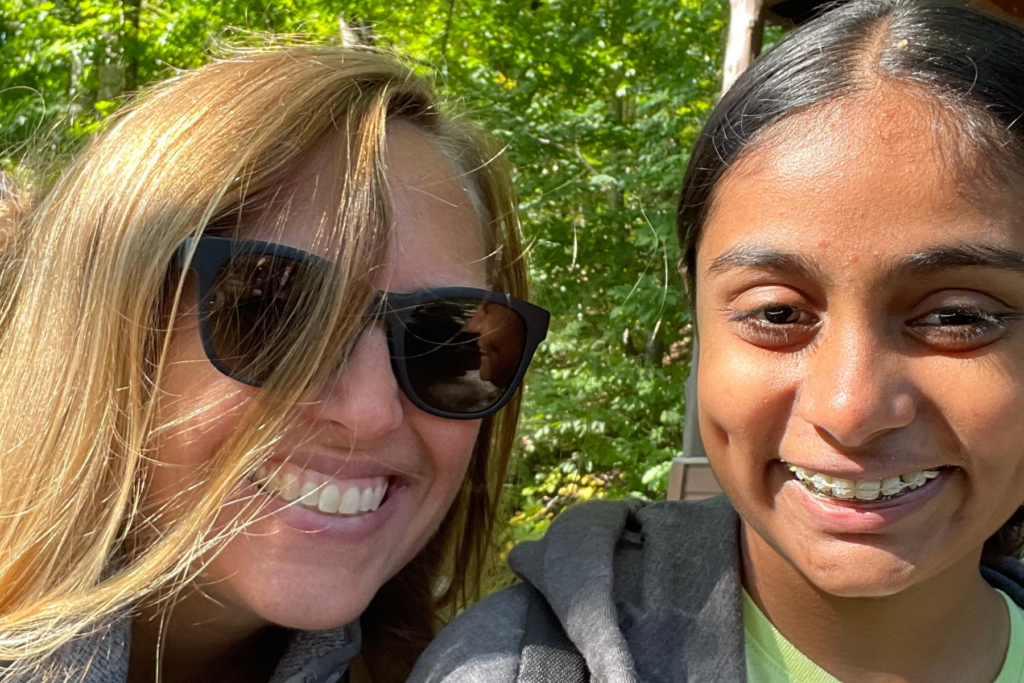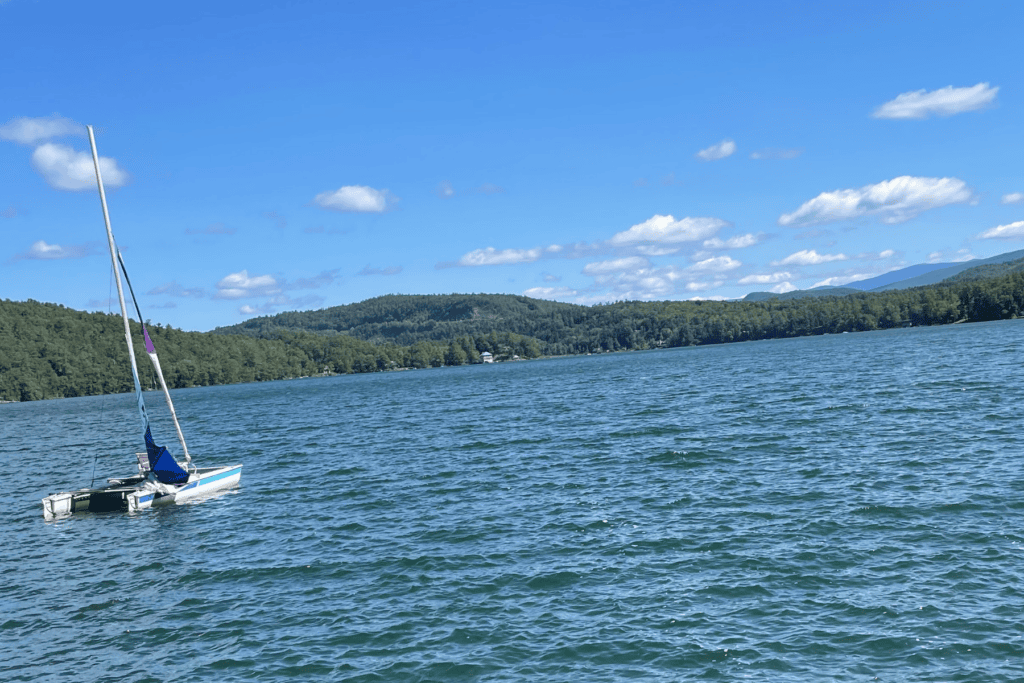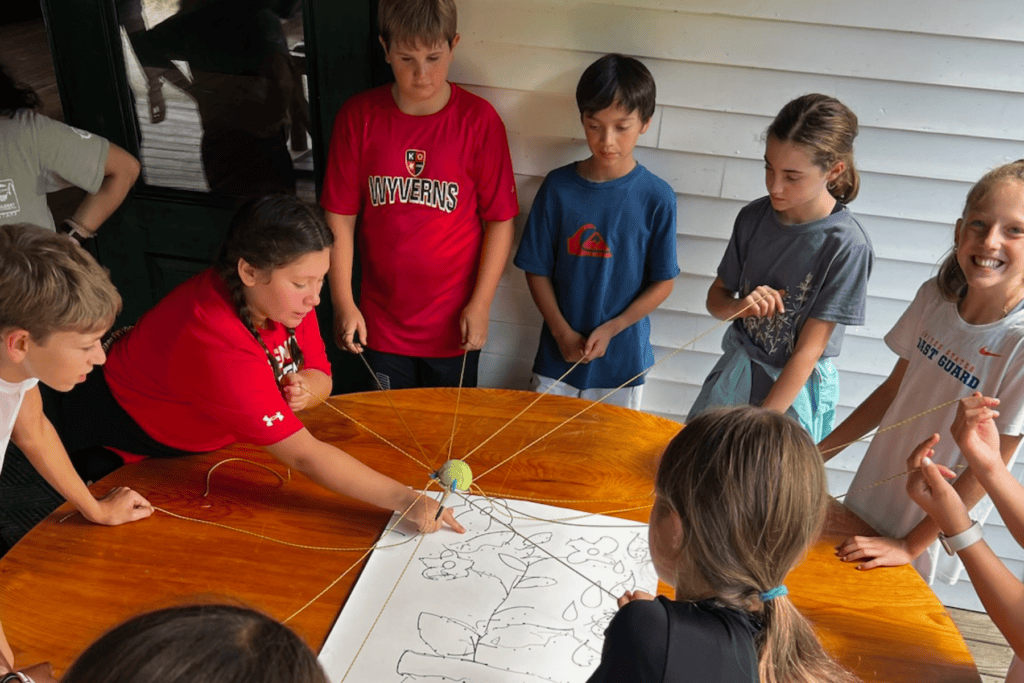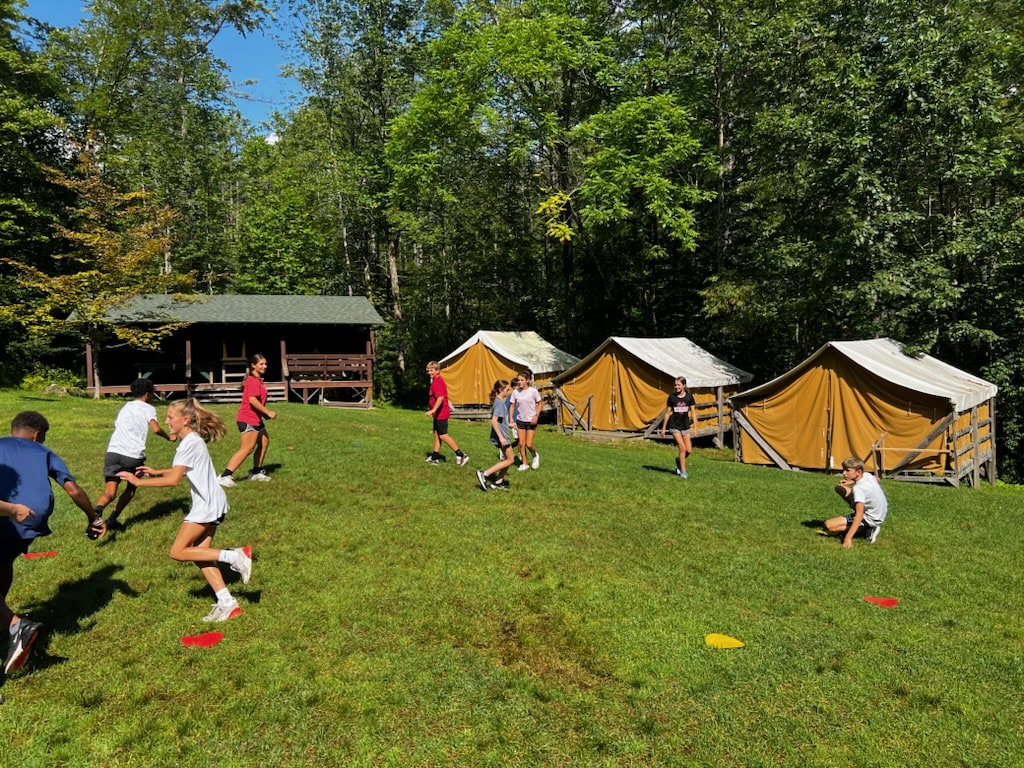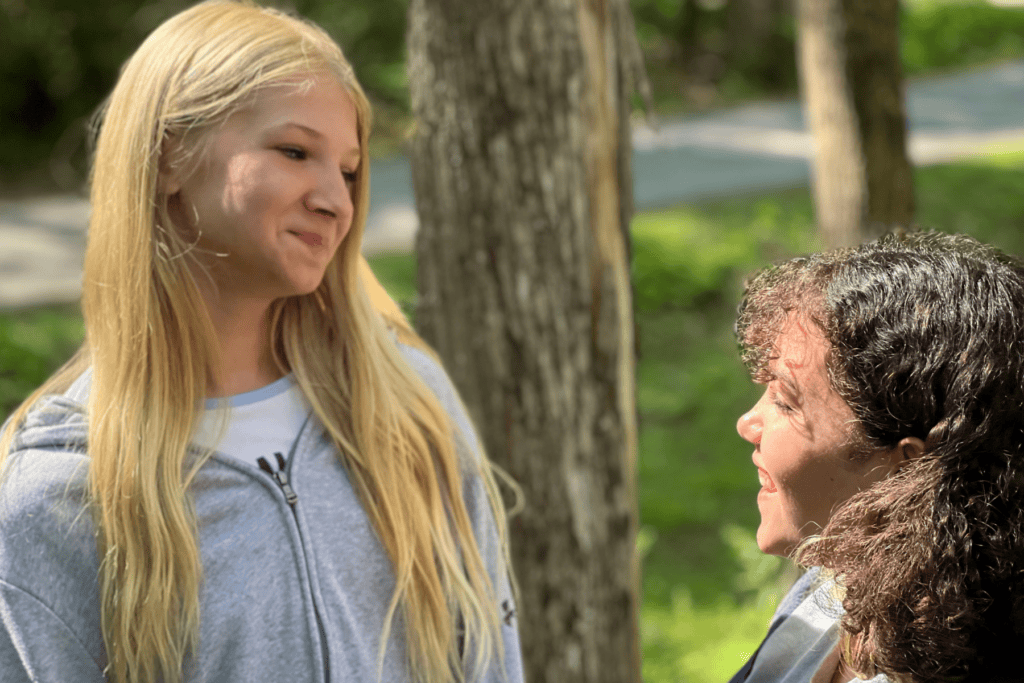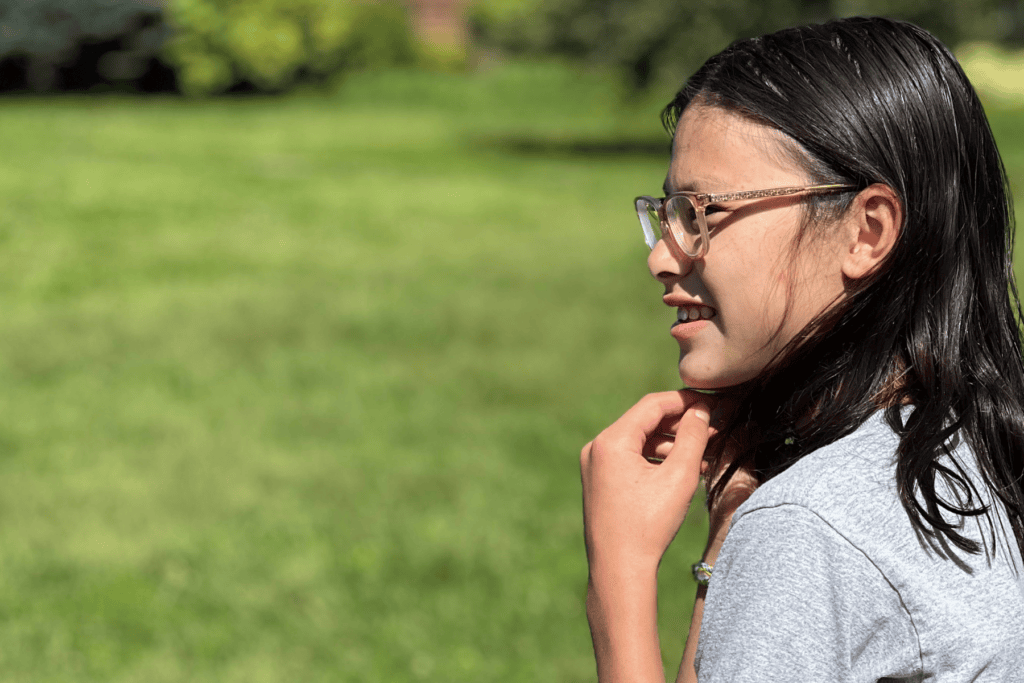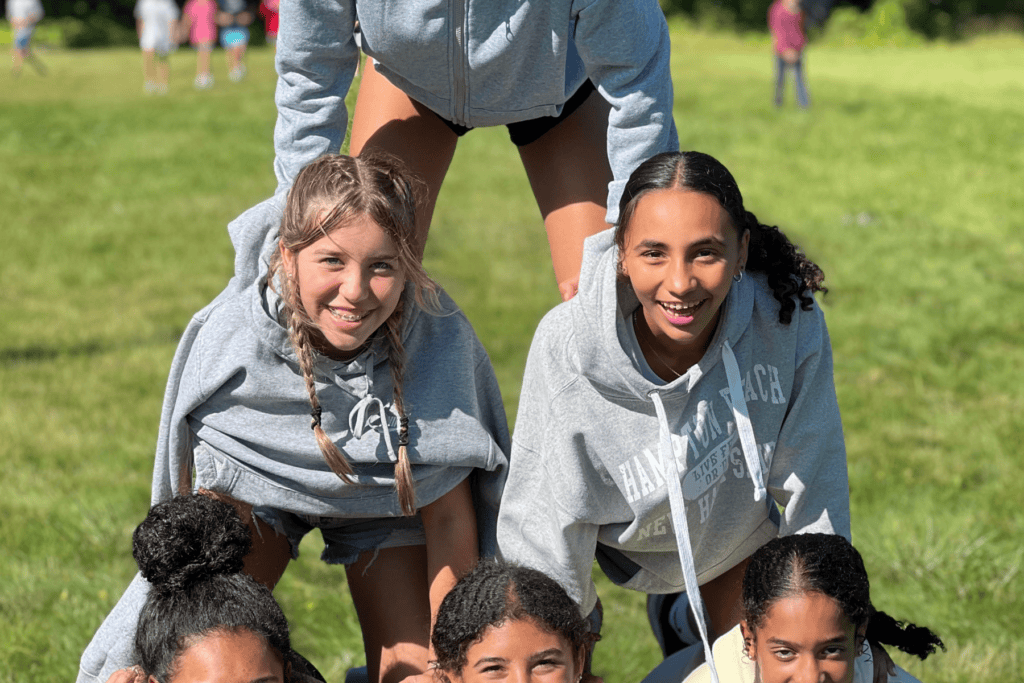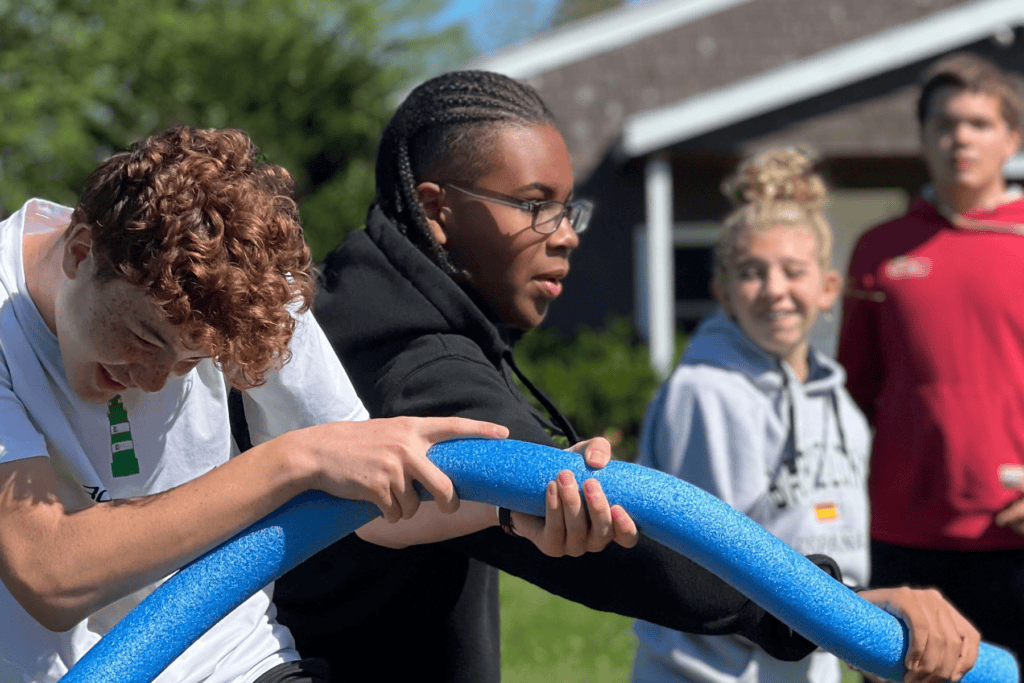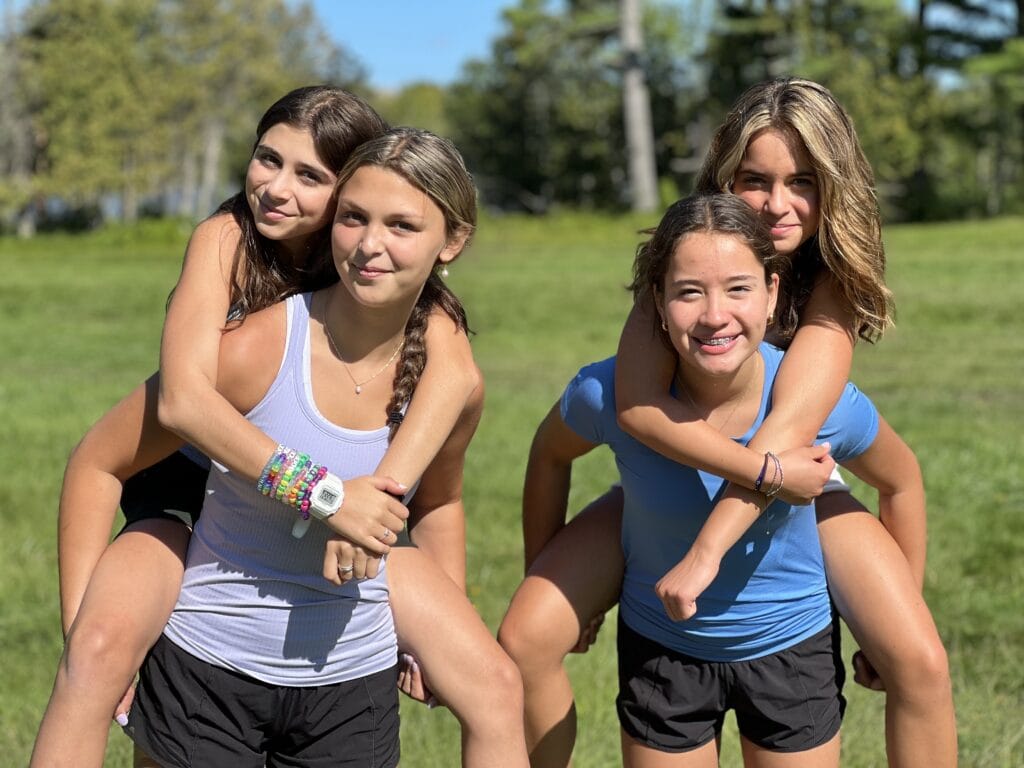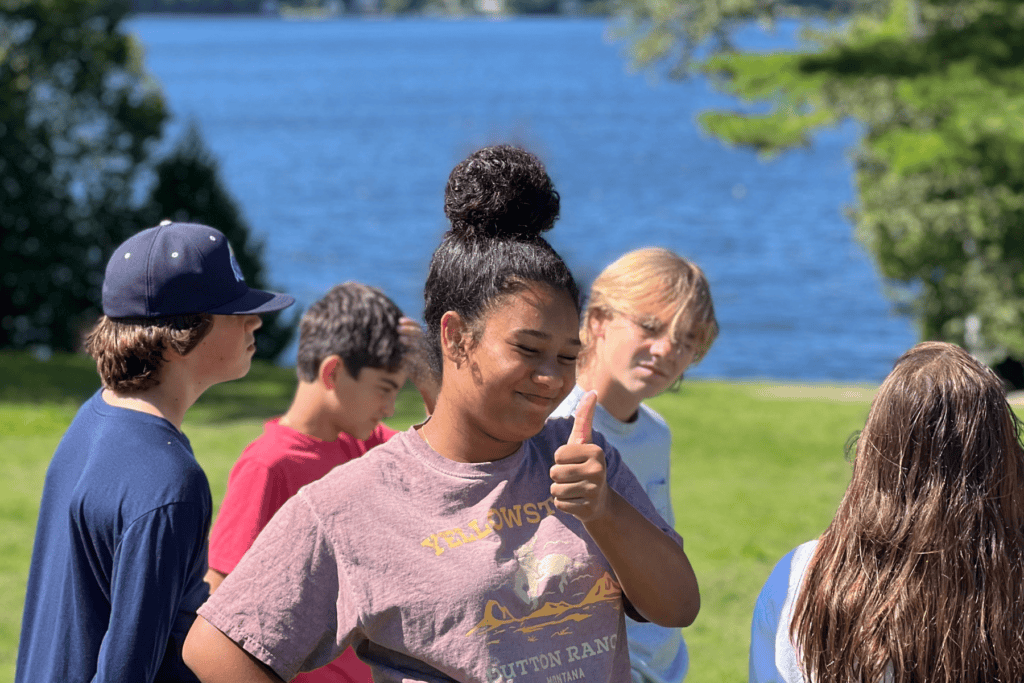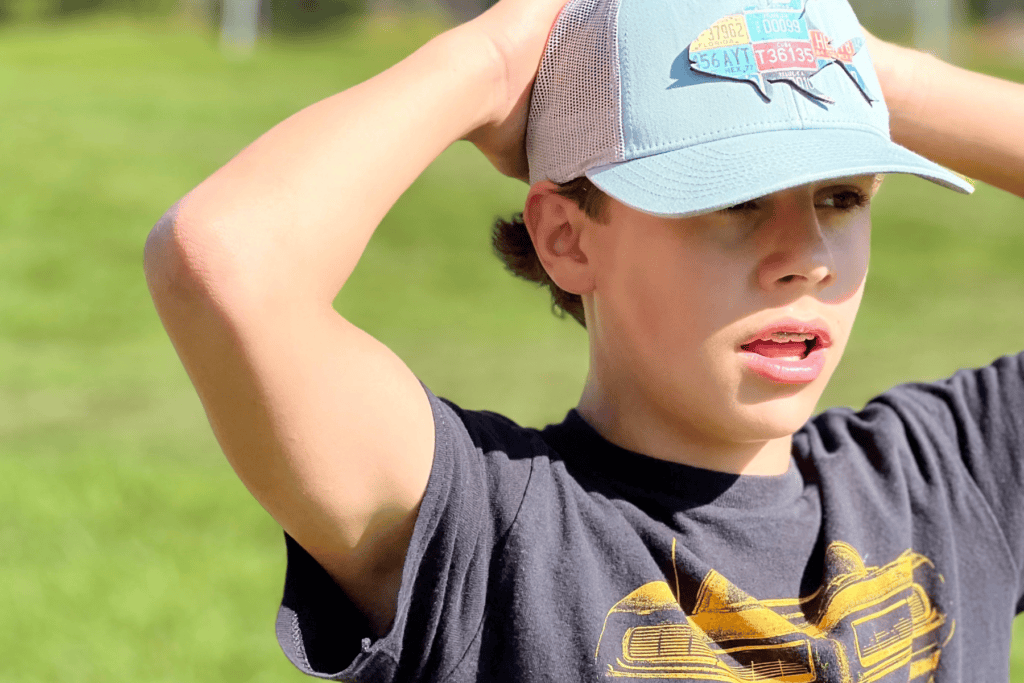Experiential Learning in the Middle School
Experiential Learning in the Middle School
In order to be as effective as possible in middle school, we can’t confine ourselves to the four walls of the classroom. Deep and profound learning happens when our students are engaged, active, and outside their comfort zone. Our students take part in activities both in and out of the classroom that complement and support our academic program.
When learning is experiential (action and reflection) students’ understanding of cooperation, risk-taking, leadership, and self-awareness is deeper and more meaningful. KO Middle School trips provide all students the ability to experience nature firsthand, use their minds and bodies in new ways, and learn how to trust and care for one another.
Upper Prep - Camp Jewell
Our newest Wyverns hail from a variety of towns and elementary schools all across the state of Connecticut, and sometimes even Massachusetts. Once they have oriented to campus, found their lockers, and gotten used to their schedules, it is time to head off to Camp Jewell in Colebrook, CT, for three days in late September. KO has long chosen Camp Jewell as the destination for the Upper Prep trip because it is away from campus, but not too far, and their facilities and program meet our needs and the goals we have for our students.
Among these goals is for students to get to know each other and their advisors and to begin to forge a class identity and culture. Students spend time working through low ropes team-building exercises that challenge them to lead, follow, and most importantly listen to each other to solve a variety of physical and intellectual problems. Senior Advisors (Upper School seniors who work with Upper Prep advisee groups) join the group for one overnight to deepen their relationships with the Upper Prep students by playing and working together.
This three-day trip provides the Upper Prep class with the opportunity to begin the process of forming a class identity; students get to know each other in a much more meaningful way than they are able to at school. Through a variety of team-building activities, students develop their ability to listen actively, share their ideas, and negotiate compromise. In short, they learn the importance of both leading and following in order for a group to solve a problem collaboratively. Throughout this process, students strengthen self-awareness and self-confidence while stretching beyond all that is most comfortable for them. For many students, sleeping away from home is anxiety-provoking, and this trip provides them with an opportunity to work through their fears and develop resilience and flexibility, along with empathy for what their classmates are also going through. These skills are critical for students in the classroom, and Upper Prep teachers draw on the learning that takes place at Camp Jewell once students return to the classroom.
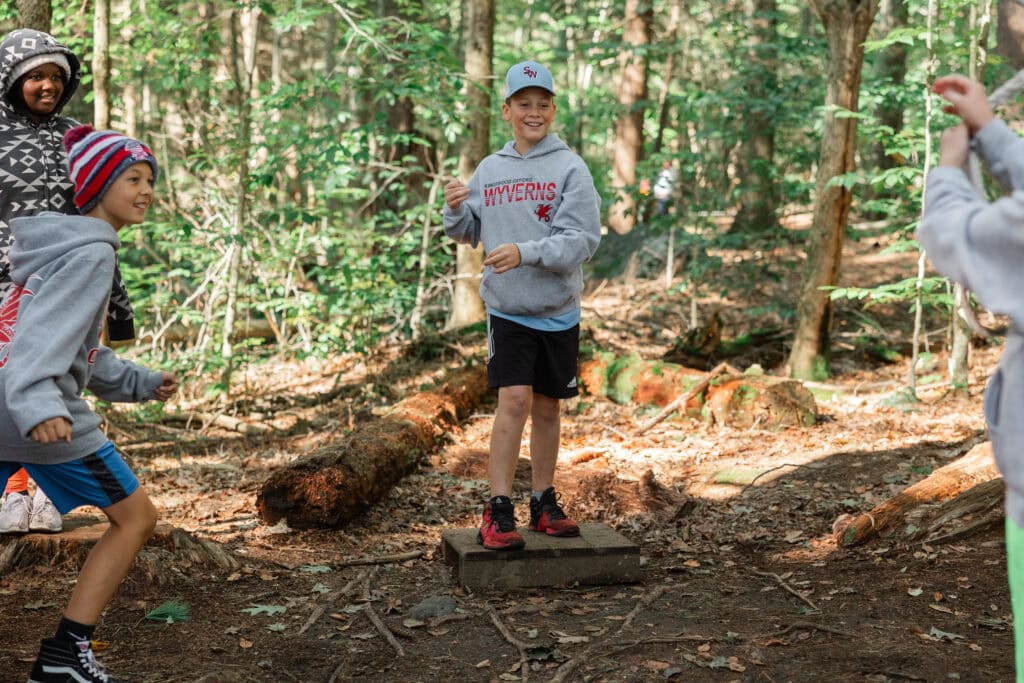
Form 1 - Hulbert Outdoor Center
Students in Form 1 find themselves in a period of great change, both cognitively and physiologically. As a result of the profound growth and development that happens at this time, a child’s natural orientation turns inward, and the program and goals of our trip to the Hulbert Outdoor Center in Fairlee, VT take advantage of this natural inclination and focus on personal growth and development.
This trip to Vermont is designed to provide appropriate challenge and support as students learn to take physical and intellectual risks and to push beyond the boundaries they have created and the manner in which they define themselves. Students continue to work to solve team-building initiatives with a group, and the focus of debriefing discussions is on the individual contributions and impact every member of the group had on the success, or failure, to meet the challenge. Students develop the skills they need to communicate clearly and to listen attentively to others. Every student must be actively involved in order for the group to succeed, and thus students learn to negotiate the tension between their natural inclination toward leading, following or standing by to figure out what active participation means for them. Students learn, as well, that what active participation means for them will vary with the tasks set before them.
At Hulbert, students will have the opportunity to brave the challenge of an extensive ropes course. This will require that they work on a variety of skills from assessing their personal skill and level of comfort with the challenge, so they can choose the appropriate level of challenge, to tackling the physical challenges of climbing which require strength and balance, to confronting and working their way through their fear as they move up into the trees. All students are required to get their feet off the ground; some climb a short distance up an inclined log, and others go so far as to climb blindfolded. All levels of participation are respected. Students have the opportunity to show empathy and support for their classmates who are climbing and to show initiative, perseverance, and resilience when they are in the trees. During the debriefing process students analyze their performance and growth, further developing their self-awareness and confidence.
During their time at Hulbert, students will also engage in activities related to the Form 1 earth science curriculum, including the geology of the area of Vermont where Hulbert is located and astronomy skills during a night walk. As is the case with the Upper Prep trip, students gain important skills that are directly applicable to their work in the classroom.
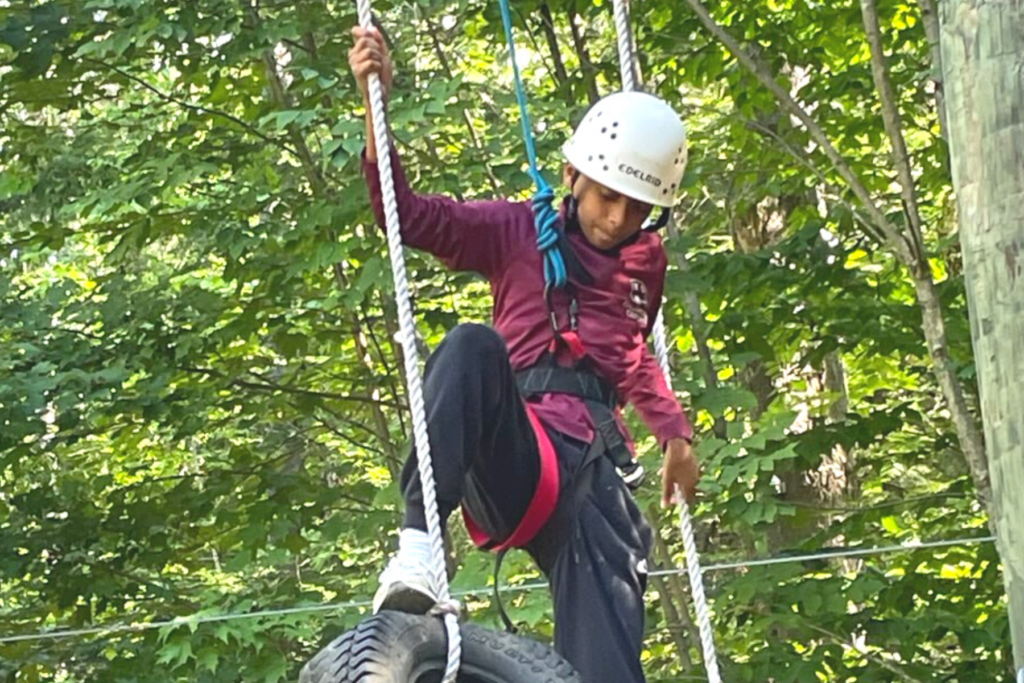
Form 2 - Snow Pond
Form 2 heads off to a new destination in 2023: Snow Pond in Sydney, Maine. During the summer, this is the home of the New England Music Camp, founded in 1937 by Dr. Paul and Nine Wiggin, parents of faculty member Matthew Wiggin. We are excited to begin our relationship with this long-established organization. The timing of this trip is intentional in that one of the goals of the trip is to ensure the successful integration of new Form 2 students while at the same time challenging returning Form 2 students to broaden the relationships they have with classmates they don’t yet know well.
The goals of the Form 2 trip encompass the goals of both the Upper Prep and Form 1 trip, at a more advanced level, all while adding leadership development to the equation. Students engage in meaningful conversations with advisors, peers, and Snow Pond staff about who they want to be as the oldest students in the Middle School and about the legacy they want to leave when they move on to the Upper School. There is also time set aside for games and social interactions to provide opportunities for students to deepen their friendships.
Among the skills that students cultivate are building meaningful friendships, overcoming obstacles, confronting fears, defining and developing leadership abilities, listening, and effective communication.
